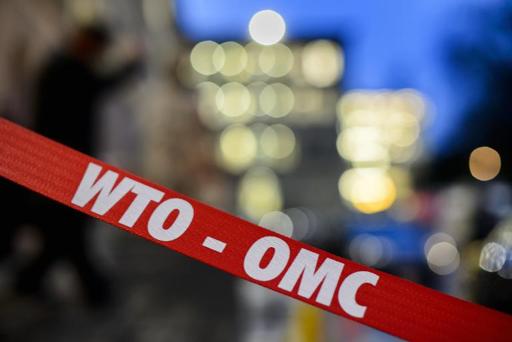China has broken the rules of global commerce by restricting exports of rare earths, tungsten and molybdenum, a move that benefited domestic industries, a World Trade Organization panel said on Wednesday.
The WTO disputes settlement body said that Beijing's deployment of export duties and quotas, plus limits on who could trade in what are key raw materials for hi-tech goods, skewed global commerce against fellow nations.
In a trade ministry statement issued by its diplomats in Geneva, China said it regretted the ruling and was considering its options.
The panel, made up of independent trade and legal experts, backed a WTO complaint filed in 2012 by the United States, the European Union and Japan.
China accounts for 95 percent of global production of rare earths, a term covering 18 metals which are vital for many industrial and high-tech processes such as the production of smartphones, hybrid car batteries, wind turbines, steel and low-energy light bulbs.
But given that it is home to 23 percent of global reserves of such metals, China has raised concerns about over-exploitation.
Beijing insists that its measures, imposed in 2011, seek to conserve natural resources and reduce pollution caused by mining.
"The Chinese government has been reinforcing and improving its comprehensive regulation on high-polluting, high-energy-consuming and resource-consuming products in recent years," the trade ministry said.
"China believes that these regulatory measures are perfectly consistent with the objective of sustainable development promoted by the WTO."
The plaintiffs countered that the aim was to drive up export prices and gain market advantage for domestic producers with cheaper access to the raw materials.
"The verdict is clear: export restrictions cannot be imposed supposedly to conserve exhaustible natural resources if domestic use of the same raw materials is not limited for the same purpose," the EU said in a statement.
Brussels said countries had a sovereign right to limit mining and protect the environment, but that WTO rules applied once raw materials were out of the ground.
"The extracting country cannot limit the sales of its raw materials to its domestic industry, giving them a competitive edge over foreign firms," it added.
Washington also hailed the ruling.
"The United States is committed to ensuring that our trading partners are playing by the rules," US trade chief Michael Froman said in a statement.
"China's decision to promote its own industry and discriminate against US companies has caused US manufacturers to pay as much as three times more than what their Chinese competitors pay for the exact same rare earths," he added.
60 days to appeal
The WTO panel ruled that China's use of export duties was "inconsistent with China's WTO obligations" and said quotas were "designed to achieve industrial policy goals rather than conservation".
"'Conservation' does not allow members to adopt measures to control the international market for a natural resource, which is what the challenged export quotas were, in the view of the panel, designed to do," it said.
"The overall effect of the foreign and domestic restrictions is to encourage domestic extraction and secure preferential use of those materials by Chinese manufacturers," it added.
The panel nonetheless said that Beijing was within its rights to craft environmental measures for the raw materials sector, provided they were not discriminatory.
China also restricts the rights of companies to export such raw materials, but the panel found that Beijing had "not satisfactorily explained" why such measures should be permitted.
"Accordingly, the panel concluded that China's trading rights restrictions breach its WTO obligations," it said.
The Geneva-based WTO polices respect for global trade accords in an effort to offer its 159 member economies a level playing field.
Its disputes settlement body has the power to authorise retaliatory trade measures against a country found at fault and which fails to fall into line.
Disputes at the WTO are often highly complex and technical, and can last for several years amid appeals and assessments of compliance with its rulings.
Beijing has 60 days to appeal against the panel's decision.
The trade ministry said China was "currently assessing the panel report and will follow the WTO dispute settlement procedures to settle this dispute".
In any event, it said, China would "continue to strengthen its regulation on resource products in a WTO-consistent manner and maintain fair competition".


















































